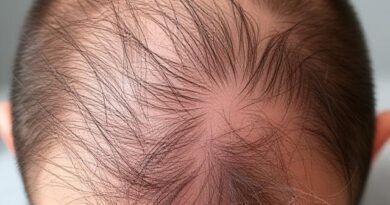Overusing nasal spray can cause these effects on your body.
Nasal sprays are a common and convenient first-line treatment for nasal congestion and persistent allergies, offering rapid, targeted relief. However, this seemingly benign solution can lead to unexpected complications if used excessively. Dr. Shama Kovale, a Consultant ENT Surgeon at Kokilaben Dhirubhai Ambani Hospital in Mumbai, highlights the importance of understanding the different types of nasal sprays and their potential risks when overused.
Decongestant sprays, containing active ingredients like xylometazoline or oxymetazoline, work by constricting swollen blood vessels in the nasal passages, providing swift relief from blockage. Saline sprays, considered the safest option, help moisturize the nasal cavity and prevent crusting without any adverse effects. Corticosteroid sprays are primarily prescribed for conditions like allergic rhinitis, effectively reducing inflammation and managing allergy symptoms.
Despite their effectiveness, overuse of nasal sprays, particularly decongestants and corticosteroids, can lead to several unintended side effects. One significant risk associated with prolonged use of decongestant sprays is rebound congestion, also known as rhinitis medicamentosa. This occurs when the nasal passages become reliant on the spray to remain open, creating a cycle of increasing usage and worsening congestion. Furthermore, frequent and extended use of decongestants can lead to psychological or physiological dependency, making it difficult to breathe normally without the spray.
Both corticosteroid and decongestant sprays, when used in excess, can dry out the delicate nasal lining, resulting in irritation and occasional bleeding. While rare, long-term use of corticosteroid sprays may also carry risks such as osteoporosis, particularly in vulnerable populations like postmenopausal women.
Certain individuals should exercise caution or avoid nasal sprays altogether. Pregnant or lactating women should consult a doctor before use to ensure safety. Nasal spray use in children under six years is generally not recommended unless under medical supervision. Individuals with glaucoma or high blood pressure should be particularly cautious with decongestant sprays, as these conditions can be exacerbated.
To minimize the risks associated with nasal spray use, it is crucial to adhere to recommended dosages. Most decongestant sprays should not be used for more than 3-5 consecutive days. If symptoms persist, seeking advice from an ENT specialist is recommended. They can provide guidance on safer alternatives and long-term treatment plans. For a safe, everyday option, saline sprays are an excellent choice for maintaining nasal hygiene. Understanding the different types of nasal sprays and the potential consequences of overuse is essential for their safe and effective use.





